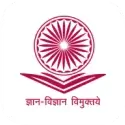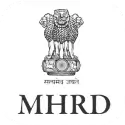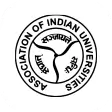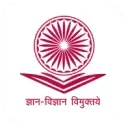MSC in Botany
Overview of MSC in Botany at Annamalai University(CDOE)
The MSc Botany program at Annamalai University (CDOE) is designed to give you deep knowledge of botany. The COURSE course covers all topics in detail to help you fully understand the subject.
Annamalai University – Center of Distance and Online Education has worked hard to make distance learning in botany clear and effective. If you want to learn botany in-depth, this program is a great choice. The university is accredited by UGC-DEB, AICTE, and NAAC with an A+ grade. Visit the official website of Annamalai University for more information.
Highlights of MSC in Botany Distance Education at Annamalai University (CDOE)
Annamalai University – Center of Distance and Online Education offers excellent learning in Botany. This program of annamalai university distance education will help you to explore many areas of science. Understanding botany is easier with visual learning methods.
The program is available in distance mode. It is a 2-year course divided into 4 semesters. The MSC program provides detailed knowledge of botany. To be eligible, you need a BSc in Botany, Plant Biology, or Plant Biotechnology with at least 50% marks in Part III. The program is available in English and Tamil to reach many students.

UGC Entitled
Recognized by the University Grants Commission

Grade NAAC A++ Accredited
Accredited by the National Assessment and Accreditation Council

AICTE Approved
Approved by the All India Council for Technical Education

MHRD Approved
Ministry of Human Resource Development

WES Accredited
World Education System

AIU Approved
Recognized by the Association of Indian Universities
MSC Botany Syllabus Distance Education at Annamalai University (CDOE)
| MSC Botany Syllabus | |||
|---|---|---|---|
| Plant Diversity-I Algae, Fungi, Lichens and Bryophytes | Taxonomy of Angiosperms and Economic Botany | Cell and Molecular Biology | Plant Physiology and Plant Metabolism |
| Plant Diversity - II: Pteridophytes, Gymnosperms and Paleobotany | Plant Anatomy and Embryology of angiosperms | Genetics, Plant Breeding & Biostatistics | Laboratory Course-IV: Covering Core Papers XI |
| Laboratory Course- I: Covering Core Papers - 1 and 2 | Laboratory Course-II: Covering Core Papers 4 and 5 | Ecology, Phytogeography, Conservation Biology and Intellectual Property Rights | Project with Viva-voce |
| Horticulture / Algal Technology | Nanobiotechnology / Applied Bioinformatics | Laboratory Course-III: Covering Core Papers 7, 8 and 9. | Organic farming / Forestry and Wood Technology |
| Mushroom Cultivation / Microbiology, Immunology and Plant Pathology | Agricultural Food Microbiology | Applied Plant Cell & Tissue culture / Silviculture and Commercial Landscaping | Botany for Advanced Studies / Professional Competency Skill |
MSC Botany Distance Education Fee Structure at Annamalai University (CDOE)
| Distance Course Fee Detail | 1st | 2nd | |
|---|---|---|---|
| 1st installment | Tuition Fee | 7,100 Rupees | 10,400 Rupees |
| Admission Fee | 75- Rupees | ||
| Registration Fees | 125- Rupees | ||
| Eligibility Fee | 150- Rupees | ||
| Certificate Fee | 150- Rupees | ||
| Postage and Stationery Fee | 500- Rupees | 500- Rupees | |
| Laboratory Fees | 3,500- Rupees | 3,600- Rupees | |
| Special Fee | 400- Rupees | ||
| Alumni Membership Fee | 500- Rupees | ||
| 2nd installment | 3,500 Rupees | 3,500 Rupees | |
| Grand Total | 16,000Rupees | 18,000 Rupees | |
Frequently Asked Question
Ans: Usually, a Bachelor’s degree in Botany or a related field like Plant Science, Microbiology, or Biotechnology with a minimum percentage (varies by year).
Ans: Typically 2 years & 4 semesters. You should also check the official website for accurate Annamalai University ”courses & fees details.”
Ans: It may include options like Plant Physiology, Plant Biochemistry, Plant Pathology, Plant Systematics, and Environmental Botany. You should check the university website for the most current information regarding the Annamalai University distance education MSc chemistry fees structure.
Ans: You will be able to get into academic research, teaching and environmental consultancy as well, which will be helpful for agriculture.
Ans: Applications are mostly submitted online through the university’s official website. Check the university website for the application deadlines and process.
